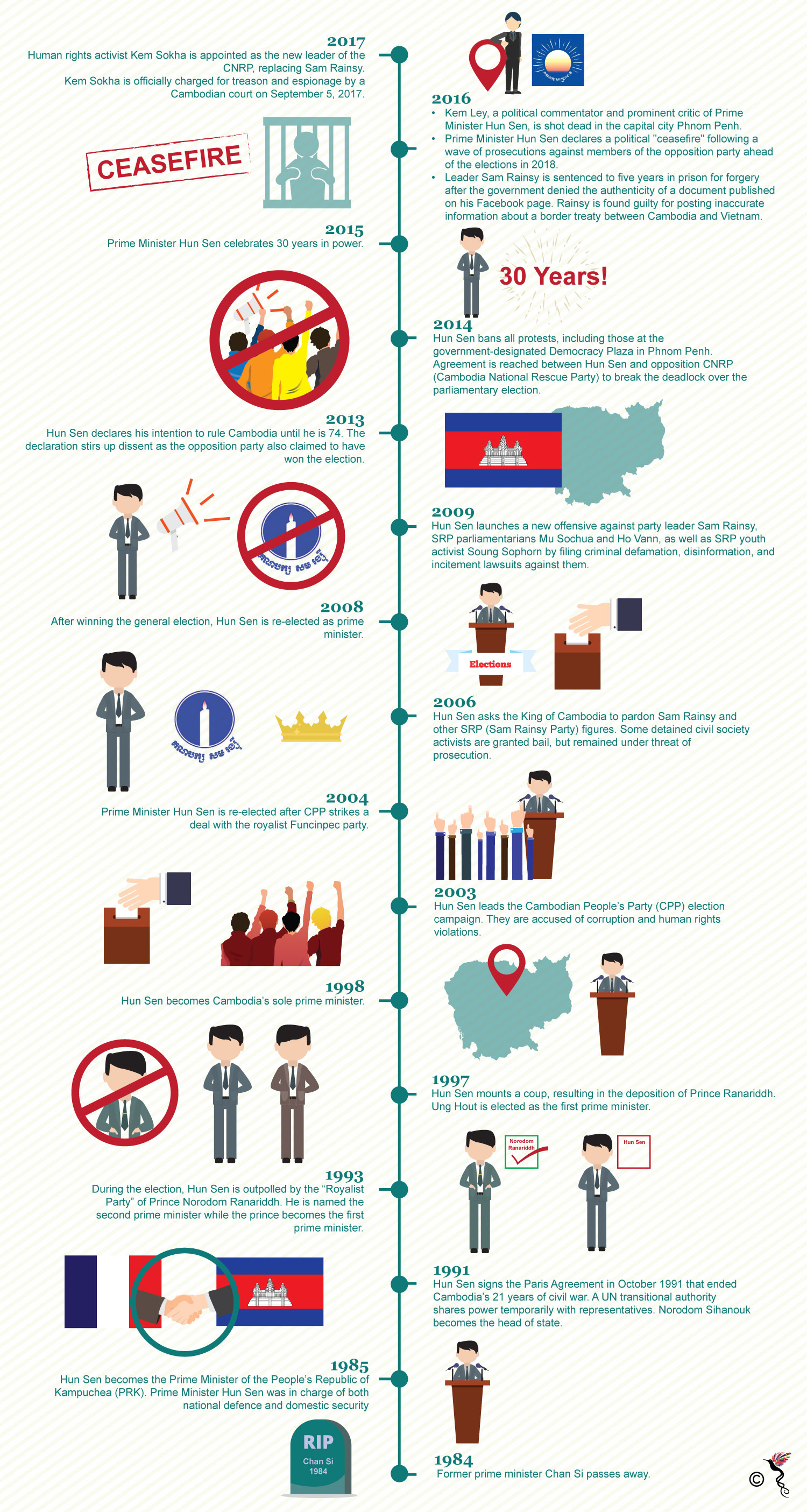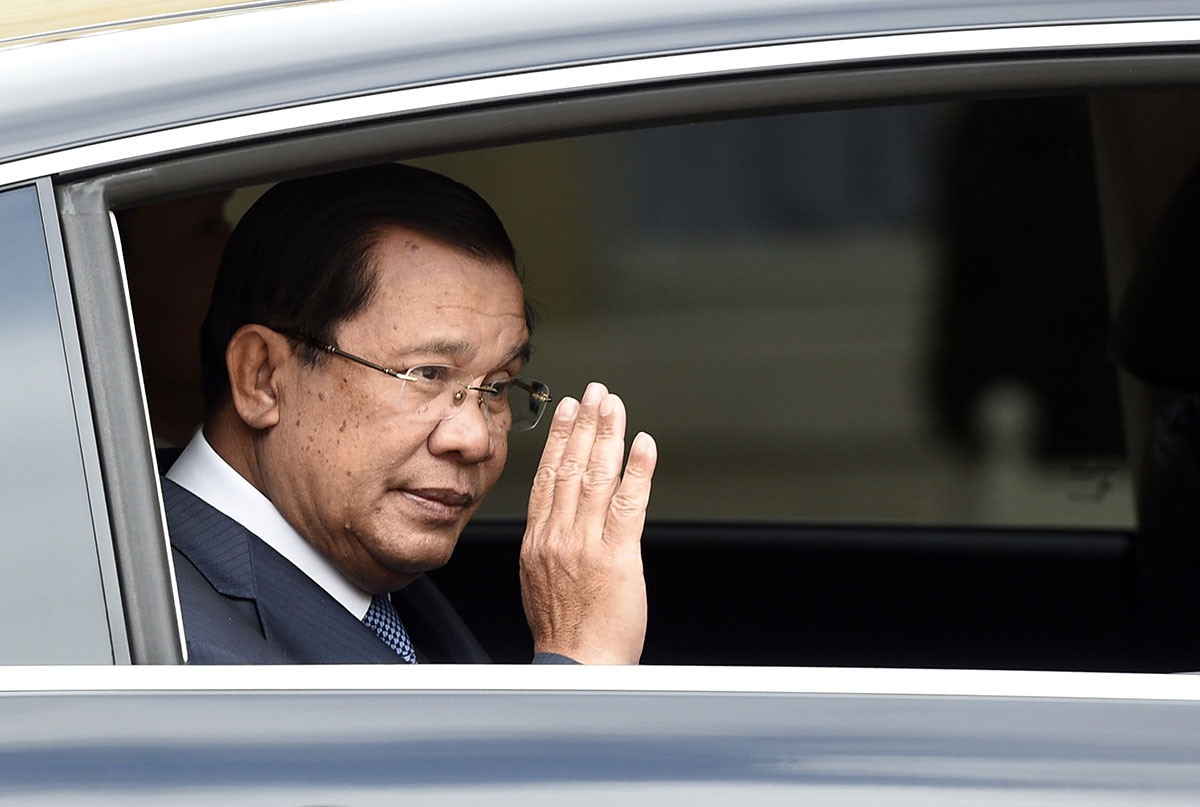Cambodian Prime Minister Hun Sen’s crackdown on his critics have taken a turn for the worse as opposition parliamentarians have fled the country for fear of being incarcerated like their opposition leader, Kem Sokha.
Hun Sen’s actions came amidst fears that his 32-year rule in the country might end due to increased support for the opposition. But after a commando-like swoop against the leader of the main opposition party, the CNRP (Cambodian National Rescue Party) earlier this month, the opposition has seemingly weakened.
“The CNRP is without leadership and unable to prepare for the upcoming election. Our colleagues are under constant threats and security risks,” said Monovithya Kem, daughter and fellow opposition (MP) Member of Parliament in an exclusive email interview with The ASEAN Post.
Cambodians are due to head for the polls next year and if recent local elections serve as any form of a barometer, it was very likely that the fledgling democracy might see a new leadership under the CNRP.
However, it now seems like the integrity of the future elections is damaged and the only glimmer of restoration lies in the release of Sokha.
“Kem Sokha's arrest adversely and severely affects the electoral process in Cambodia,” his daughter said before adding that, “his arrest also demoralises voters as it shows that the ruling government is not allowing a fair electoral process.”
Just last week, the opposition stalwart was denied bail by the judiciary whom many, including international human rights groups like Amnesty International and Human Rights Watch, consider biased as the country remains under the thumb of Hun Sen.
Cambodian policy analyst, Sophal Ear said in an email reply to The ASEAN Post, “no thinking person can see this as free and fair environment,” when asked to comment on the court’s decision to not grant bail to Sokha.
Hun Sen’s campaign against the opposition leader is detrimental to the already fractious nature of Cambodian politics. This is not the first instance of oppression by his regime as there have been many more reported over his three-decade rule.

Timeline of Hun Sen's 32-year rule.
The clampdowns on opposition voices are likely to have a divided impact on the economic stability of the country which relies primarily on tourism. While the political instability might create an uncertain economic environment, Phnom Penh can turn yearningly to Beijing for continued economic support.
Hun Sen has demonstrated in the past that he isn’t shy to be critical of the West, especially the US – which has been equally critical of his human rights records – and throws his weight behind China who has been generous in providing economic aid to this frontier economy.
With Washington slowly diminishing presence in the region following its departure from the TPP (Trans-Pacific Partnership), Beijing looks poised to fill the void by backing the RCEP (Regional Comprehensive Economic Partnership).
“The TPP was designed to contain China by keeping members primarily in the American economic orbit. Without the US, perhaps TPP’s major strategic benefit has evaporated. This in turn feeds RCEP,” said Professor of Politics at East China Normal University, Josef Gregory Mahoney, when contacted by The ASEAN Post.
RCEP is set to complement Beijing’s grandiose BRI (Belt Road Initiative) strategy which would see an expansion of its economic prowess. According to a study released by Singapore based ISEAS – Yusof Ishak Institute, “Cambodia is capitalising on the BRI to concretise its development priorities.” The study also reported that Beijing will be aiding the frontier economy in seven key areas: “infrastructure, agriculture, capacity building, special economic zone development, culture and tourism, finance, and eco-environmental protection.”
With Hun Sen looking enamoured by lucrative Chinese investments, it seems that more than ever, he will continue to do what it takes to stay in power. Sokha’s imprisonment serves as a warning to all others who seek to defy him. At the current state, his warning shot seems to have worked unless the CNRP has another trick up its sleeve.
